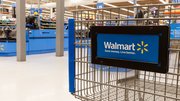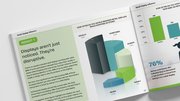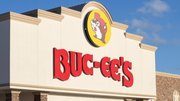Article
How Facebook pages can impact customer experience
Customers are using Facebook to research companies more than many retail executives and industry experts may have anticipated.

April 27, 2010
By Stefanie Nussel, Strategic Analyst, Morpace
For retailers looking to improve upon customer experience, a presence on Facebook may provide an additional avenue to reach and satisfy customers.
Our recent Morpace Omnibus Study looked at the role Facebook plays in the lives of consumers on both a general and retail-specific level. In short, the study finds that consumers are increasing “liking” retailer pages, making product and brand recommendations to other “friends,” and are using Facebook to research companies more than many retail executives and industry experts may have anticipated.
*Note – in April Facebook began to phase out the term “Fan Pages” and instead Facebook members can choose to “like” business, non-profit and cause pages.
Facebook’s potential for retailers is that the site can allow them to connect with their customers – a potential that is immeasurable and impossible to ignore. It is typically used primarily as a means for people to stay in touch with family and friends. However, research shows that traditional methods of marketing and advertising have evolved in order to meet the influential social media forums.
Retailers who proactively use Facebook as a method to reach their customers in addition to more traditional methods of marketing and advertising may have an unmistakable advantage over their competitors.
In March 2010, Morpace surveyed 1,000 consumers as part of an online panel on their Facebook usage habits, how often they search for or share product and service information, and their retailer page habits. What we found is that creating viral buzz appears to be an integral part of the success of a retailer’s product or service.
Facebook appeals to a wide variety of consumers across all demographics and while it initially attracted mostly younger users, its fan base is rapidly expanding to encompass members among all age groups. Among 18-34 year olds, 84 percent have a Facebook account, compared to 61 percent of 35-54 year olds, and 48 percent of people over 55. It is anticipated that these figures will continue to increase.
Morpace’s Omnibus study also shows that consumers are joining Fan Pages to support retailers. Of the total number of respondents, nearly 38 percent state they are most likely to join a retailer’s page. The reasons why consumers join fan pages vary, 41percent specifically join a retailer page “to let my friends know what products I support.” While Facebook prevents retailers from selling their products or services through the site, they can offer coupons and discounts for redemption on their website or at their respective stores.
To that end “receiving coupons and discount offers” is the second most popular reason why consumers join retailer pages, with nearly four-in-ten respondents citing this as a primary motivator.
We also find that 88 percent of all Facebook users “like” at least one retailer page and the average consumer likes at least nice such pages. The “like” usage rates combined with the open, interactive forum Facebook provides can be integral components to a successful customer experience strategy for retailers.
For retailers, the key to leveraging Facebook as a powerful marketing tool lies in customer focus. While it may seem logical for a retailer to want to load a retailer’s page with as many members as possible, quality is important. If a retailer’s page is easy to navigate, informative, interactive, provides coupons and discounts, and is fun, customers will not only become fans, but the likelihood they will recommend the page to friends may increase.
Morpace found that 57 percent of survey respondents state they use Facebook to discuss products and services with friends. Additionally, nearly 70 percent say a positive referral from a friend would positively influence their purchase. This interaction between Facebook users can create an important “virtual word of mouth” around a product or service. This, in turn, may contribute to a product or service purchase funnel, potentially leading to more robust sales.
An example of a retail brand that has successfully leveraged Facebook as a powerful vehicle to reach its customers is Adidas. Adidas’ page exemplified the attributes that characterize a strong Facebook presence: active, devoted fans, content variety, and most poignantly, strong interactive elements. Recently, Adidas teamed up with MTV to run an exclusive Facebook contest where a loyal fan could win an all-expense paid house party.
The campaign was wildly successful. Adidas chose a prize and contest that would resonate with its loyal Fan Page followers and also followed through on the buzz created by the contest by streaming videos and posting pictures of the winner’s house party.
For retailers striving to connect with its customers by providing a higher level of customer experience, Facebook can serve as an invaluable strategic partner. Our research suggests that Facebook gives retailers an effective tool to directly communicate with their target market and a retailer page can be a potent component to a customer’s experience with a retailer.
 The Morpace Omnibus study clearly shows that Facebook can be an effective way for retailers to attract, retain, and engage customers. However, the onus is on retailers to understand their customers, how they use Facebook to their advantage, and in turn develop their pages so they can effectively grow their business and heighten the customer experience.
The Morpace Omnibus study clearly shows that Facebook can be an effective way for retailers to attract, retain, and engage customers. However, the onus is on retailers to understand their customers, how they use Facebook to their advantage, and in turn develop their pages so they can effectively grow their business and heighten the customer experience.
Stefanie Nussel is a Strategic Analyst with Morpace, working with the Retail and Home Improvement sectors. Her primary responsibilities include value add initiatives for existing client accounts and research centered on new account development. She can be reached at snussel@morpace.com.
 ChatGPT
ChatGPT Grok
Grok Perplexity
Perplexity Claude
Claude




